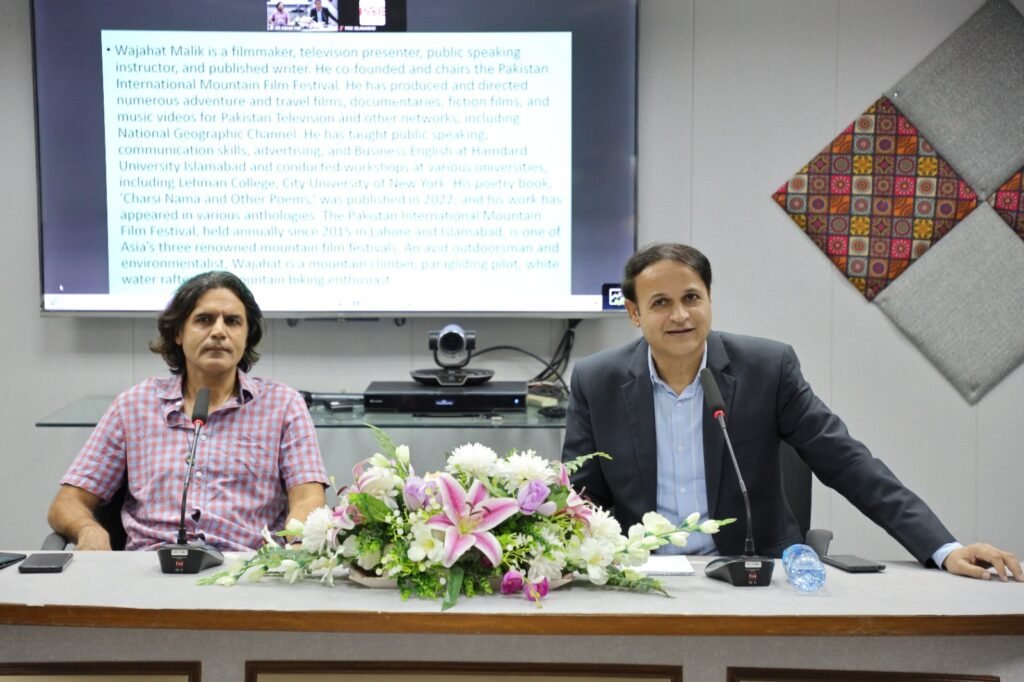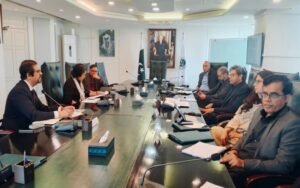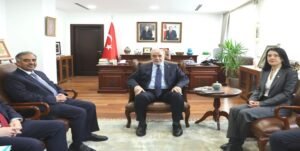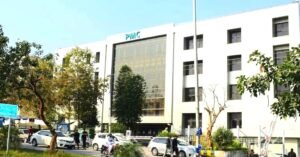
PIDE Demands Action as Climate Change Reshapes Pakistan’s Landscape
Pakistan is among the top 10 most climate-vulnerable countries globally
Islamabad : Pakistan Institute of Development Economics (PIDE) organized a seminar titled “Climate Change and Responsible Tourism in Pakistan” to highlight the country’s escalating climate crisis and explore how tourism can both contribute to and help mitigate its impacts.
The event featured Wajahat Malik, a renowned documentary filmmaker, TV presenter, and Managing Director of EyeBex, as the keynote speaker. The session was moderated by Dr. Zulfiqar Ali, Assistant Professor at PIDE.
Pakistan is among the top 10 most climate-vulnerable countries globally, facing severe and accelerating consequences such as melting glaciers, flash floods, unpredictable weather patterns, rising temperatures, and biodiversity loss. These changes pose a direct threat to both lives and livelihoods, particularly in the northern regions where tourism forms a significant part of the local economy. In his talk, Wajahat Malik emphasized that tourism can either accelerate environmental degradation or become a catalyst for resilience and adaptation. He explained that while mass tourism, when unmanaged, contributes to carbon emissions, deforestation, and excessive strain on natural resources, responsible tourism has the potential to promote sustainability, education, and local empowerment.
The seminar highlighted a range of climate-related impacts already affecting Pakistan’s tourism sector. Flash floods and glacial lake bursts have caused extensive damage to critical infrastructure, including roads, hotels, and trekking routes. Erratic weather patterns are disrupting travel seasons, resulting in decreased tourist footfall. The increased frequency of natural disasters such as landslides and Glacial Lake Outburst Floods (GLOFs) has raised safety concerns for visitors. Additionally, peak-season tourism places overwhelming pressure on limited water supplies and local ecosystems, while the degradation of scenic landscapes and biodiversity diminishes the overall quality of the tourist experience.
During the session, Malik discussed key insights into how tourism must evolve in response to these realities. He asserted that climate change is human-driven and linked to unchecked economic practices. Mass tourism, he said, often leaves behind a legacy of waste, emissions, and ecological damage. Therefore, responsible tourism is no longer optional—it is essential. To this end, he outlined several practical steps that tourists and tourism businesses can take: avoiding litter and single-use plastics by using reusable items; respecting natural ecosystems by staying on designated trails and limiting pollution; supporting local communities by choosing locally owned accommodations, guides, and products; opting for low-impact transportation; and engaging with the culture and environment of the region before visiting.
The seminar also stressed the importance of policy reform. Participants agreed on the urgent need for investment in sustainable infrastructure, effective regulation of high-traffic tourist areas, and robust awareness campaigns targeting both tourists and local communities. Such efforts are necessary to ensure that tourism contributes to climate resilience rather than exacerbates environmental vulnerabilities.
“Tourism is not just about leisure—it is deeply political and environmental,” Malik stated. The seminar concluded with a call to action for all stakeholders—including policymakers, tourism operators, researchers, and citizens—to promote ethical, climate-conscious tourism practices. Only through collective responsibility and strategic policy measures can Pakistan protect its fragile ecosystems and reimagine its tourism sector as a force for sustainable development.







